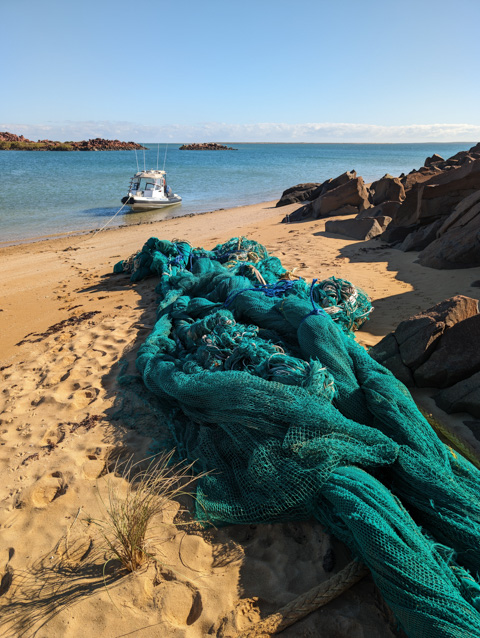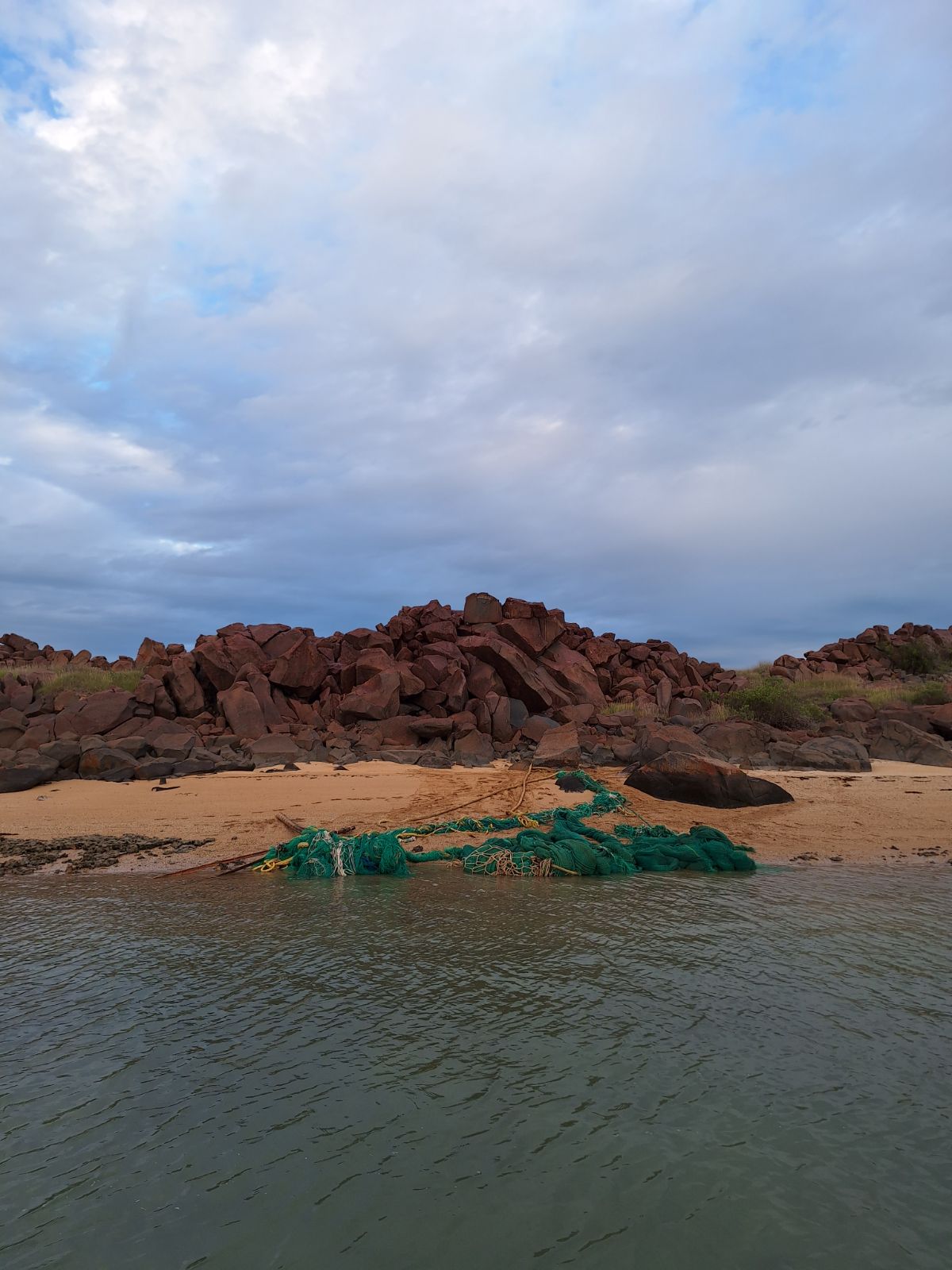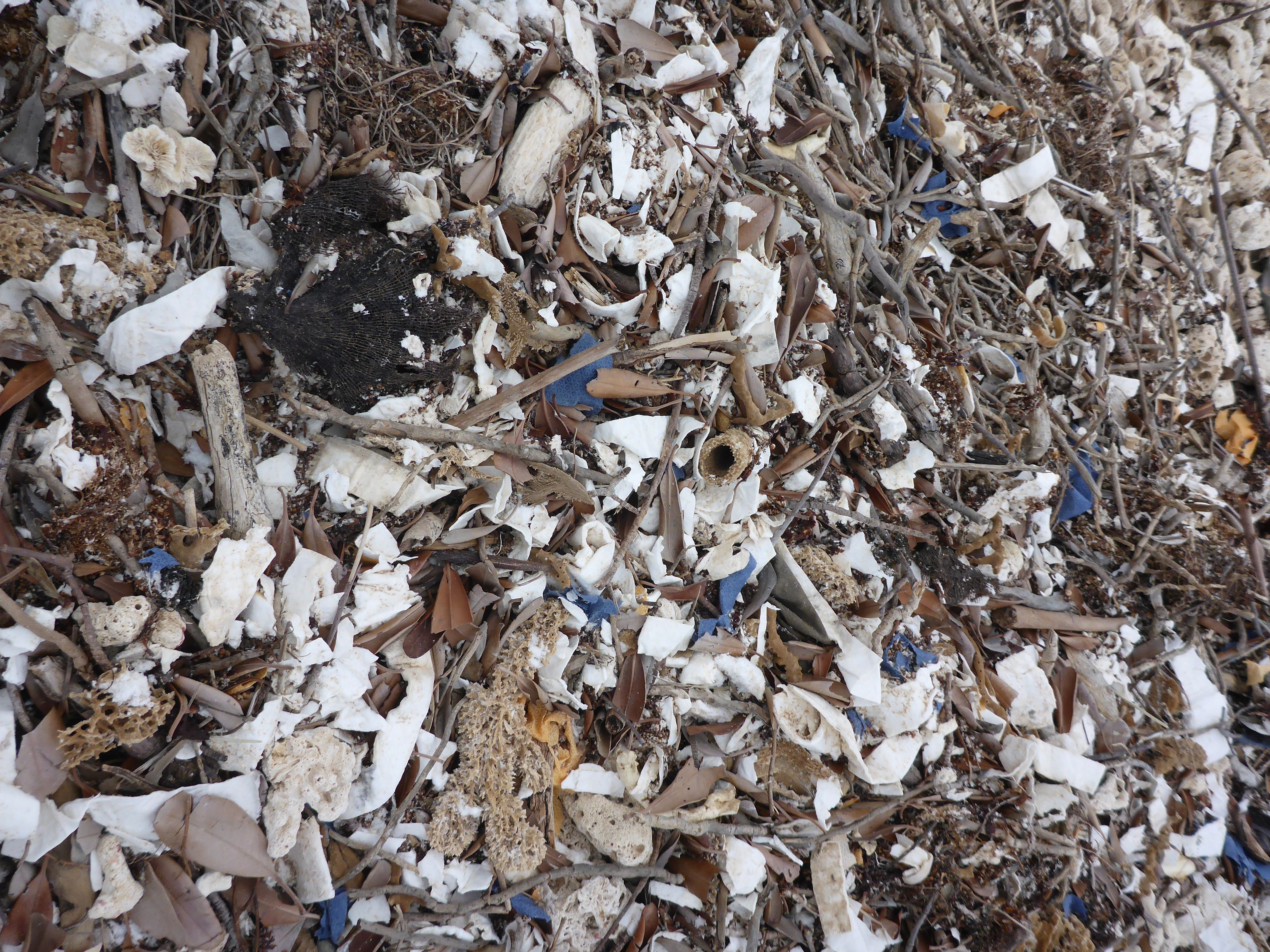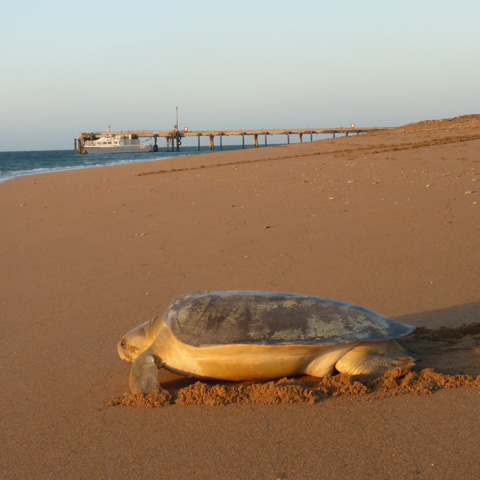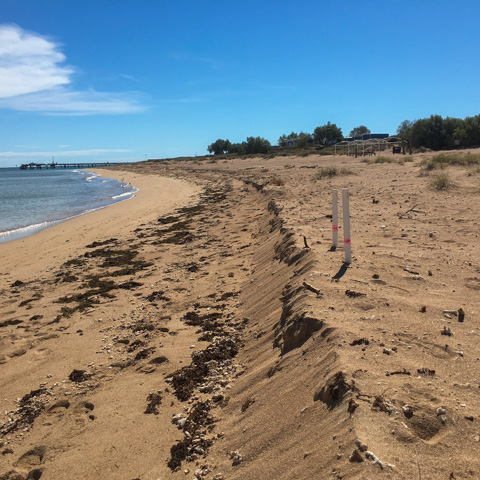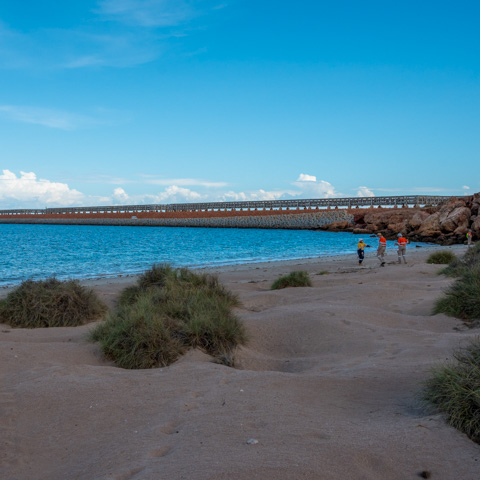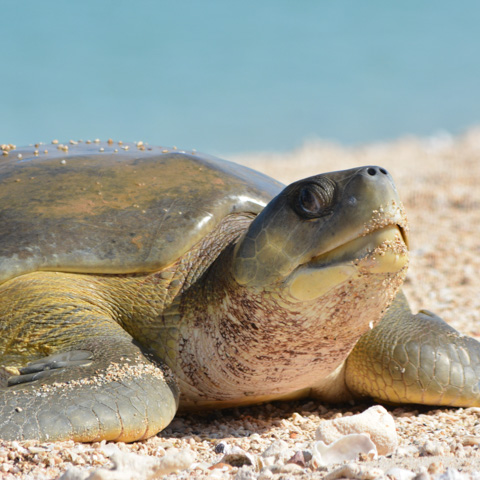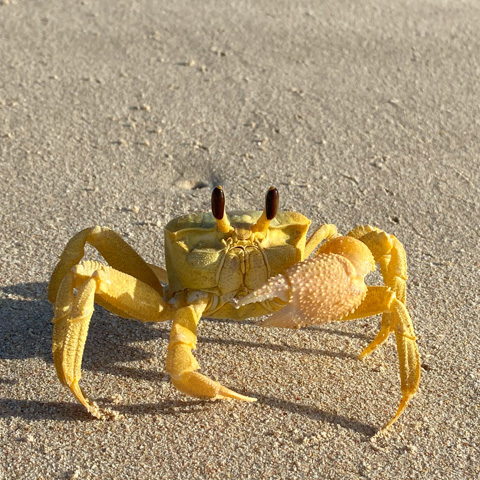The impacts of marine debris on turtles
Marine debris is a term that often refers to human derived items such as microplastics, discarded fishing nets and wire, ship materials disposed of at sea, and plastic bags and bottles. Marine debris poses a threat to flatback turtles in the water through ingestion and entanglement, while excessive debris on land can make it difficult for females to nest.
What we know so far
The annual global production of plastics grew from 250 million tons to 368 million tons between 2010 and 2020, resulting in more plastic in the environment. This amount grows by approximately 19-23 million tons every year. The ingestion of plastic during marine turtle early life stages (post-hatchling and juveniles) is an important issue to understand given the prevalence of marine debris and tendency of young turtles to eat floating material. Research has investigated the amount of plastic ingested, types of plastics ingested and if marine turtles are more likely to ingest specific colours or types of plastics. Marine turtles, including flatbacks, had high plastic ingestion rates during early life stages. Microplastics are also prevalent on turtle nesting beaches around the world and have the potential to affect nesting and hatching success.
Examples of marine debris in the Pilbara region
Research highlights
How much plastic do marine turtles ingest during their early life stages, which types of plastic are they ingesting, and are they more likely to consume particular types or colours? Researchers have assessed the extent of plastic ingestion of five species of marine turtle in Australia using stranded and bycaught specimens in both Western Australia (Indian Ocean) and Queensland (Pacific Ocean). Incidences of plastic ingestion were found in both states for green, loggerhead, olive ridley and flatback turtles.
High incidences of debris ingestion, predominantly of hard fragments, were recorded in the Pacific Ocean. There was a lower incidence in the Indian Ocean, with ingestion of mostly filamentous plastics. Across both sites clear coloured plastic was ingested most often, followed by white for the Pacific Ocean and green and blue for Indian Ocean. The polymers most commonly ingested across both sites were polyethylene and polypropylene. The high occurrence of plastic ingestion in marine turtle early life stages is a potential “evolutionary trap” as small marine turtles undertake their early years of development in polluted oceans and have evolved to eat floating material.
This research was led by the University of Exeter, in collaboration with DBCA/NWSFTCP, Deakin University, James Cook University, Department of Environment and Science QLD, Plymouth Marine Laboratory, and Murdoch University.
Microplastics (1 – 5 mm in size) have been identified on 45% of global turtle nesting beaches within 5 ocean basins, including the Western Australian coast, although in low abundance.
Microplastics consisting of plastic polymers, which leach toxic chemicals into the environment, were the most abundant type of plastic identified across all ocean basins globally. The toxicology to turtles is still unknown and requires further research.
Levels of microplastics on nesting beaches globally do not appear to be of immediate conservation concern to turtles in comparison to other threats, however beach microplastics are likely to continue increasing in the future and have the capacity to change sand properties. Some impacts could be increasing sediment permeability (resulting in wetter sand) and increasing sand temperature, particularly in the presence of dark plastics. These changes could impact hatching success, with unfavourable environmental conditions leading to higher mortality in nests.
This research was led by the University of Exeter and is an example of collaboration across the global scientific community to establish a worldwide dataset to allow comparison between beaches and the monitoring of widespread pollution. The NWSFTCP contributed by collecting samples from nesting beaches across Western Australia.
Publications
Researchers
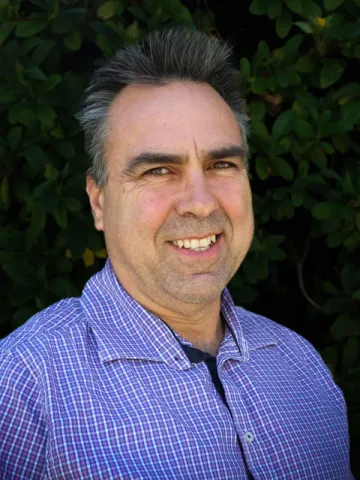
Dr Scott Whiting
Principal Research Scientist
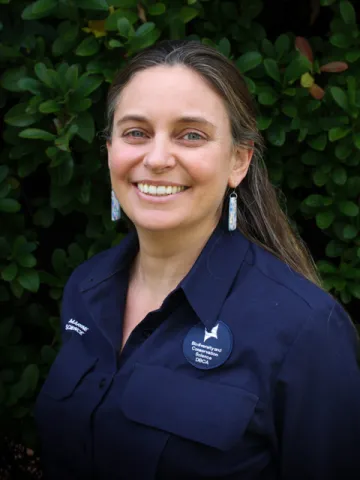
Dr Sabrina Fossette
Senior Research Scientist

Dr Tony Tucker
Senior Research Scientist





